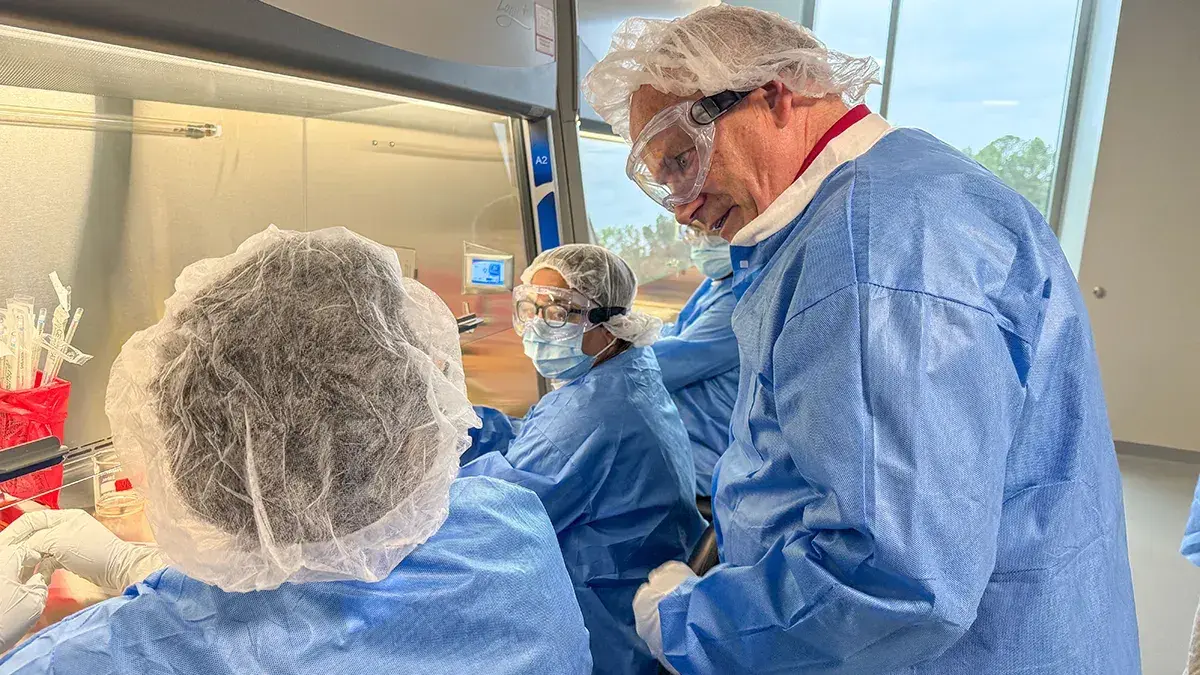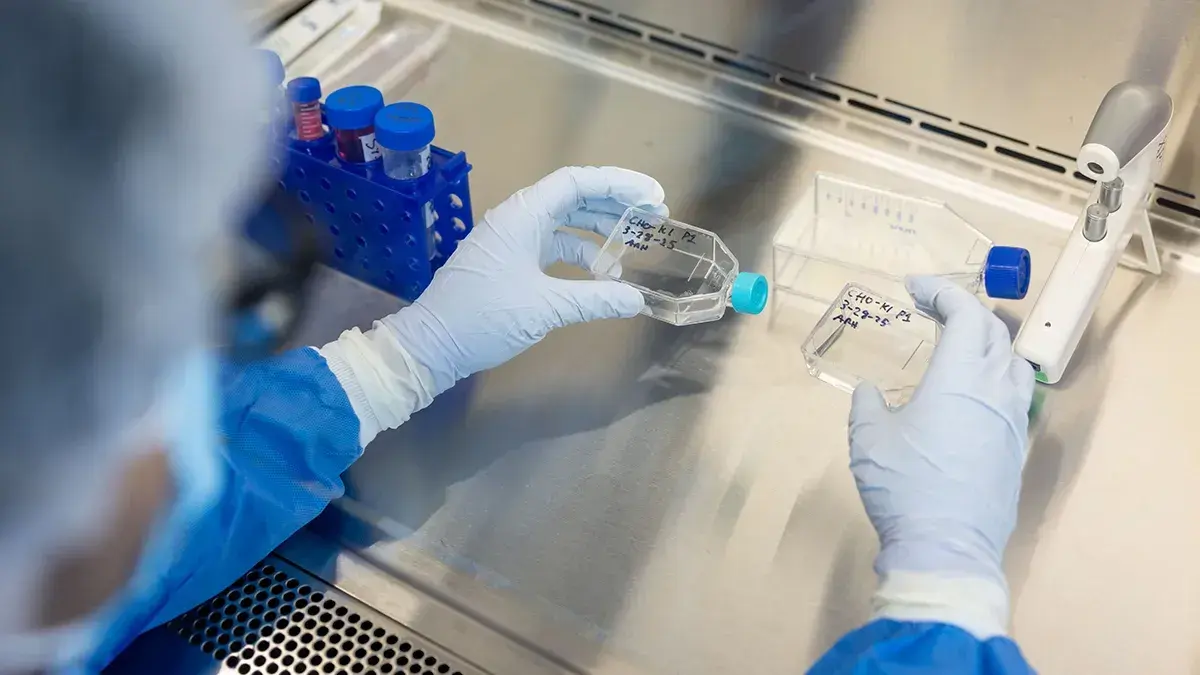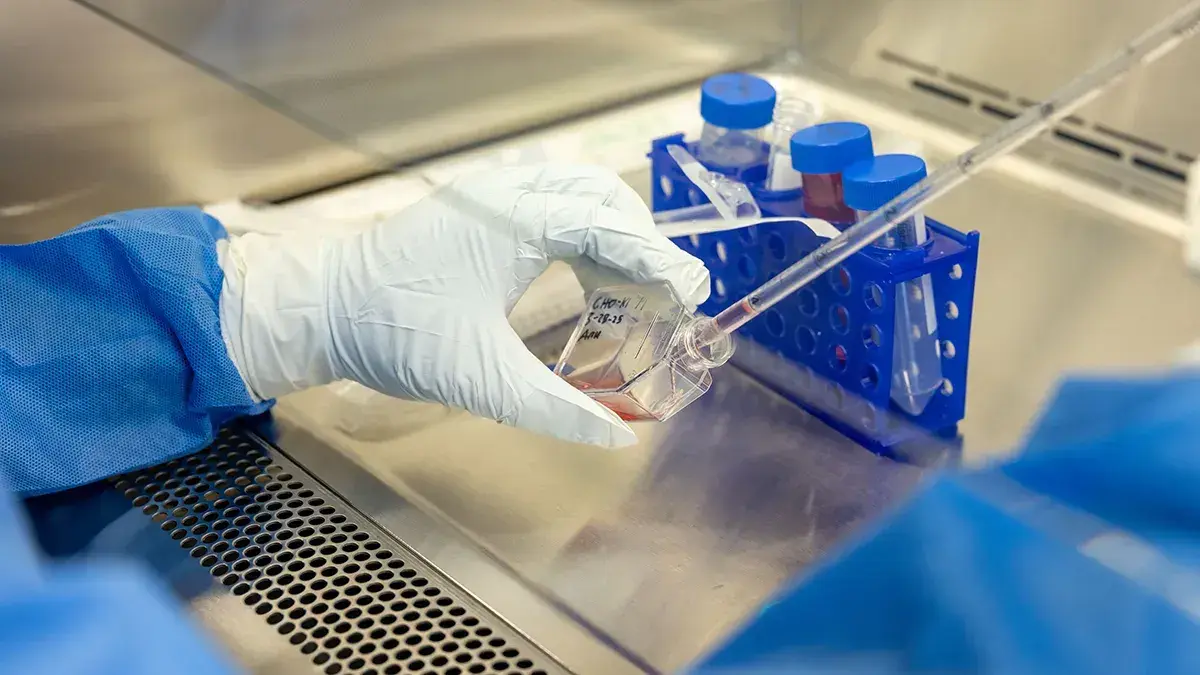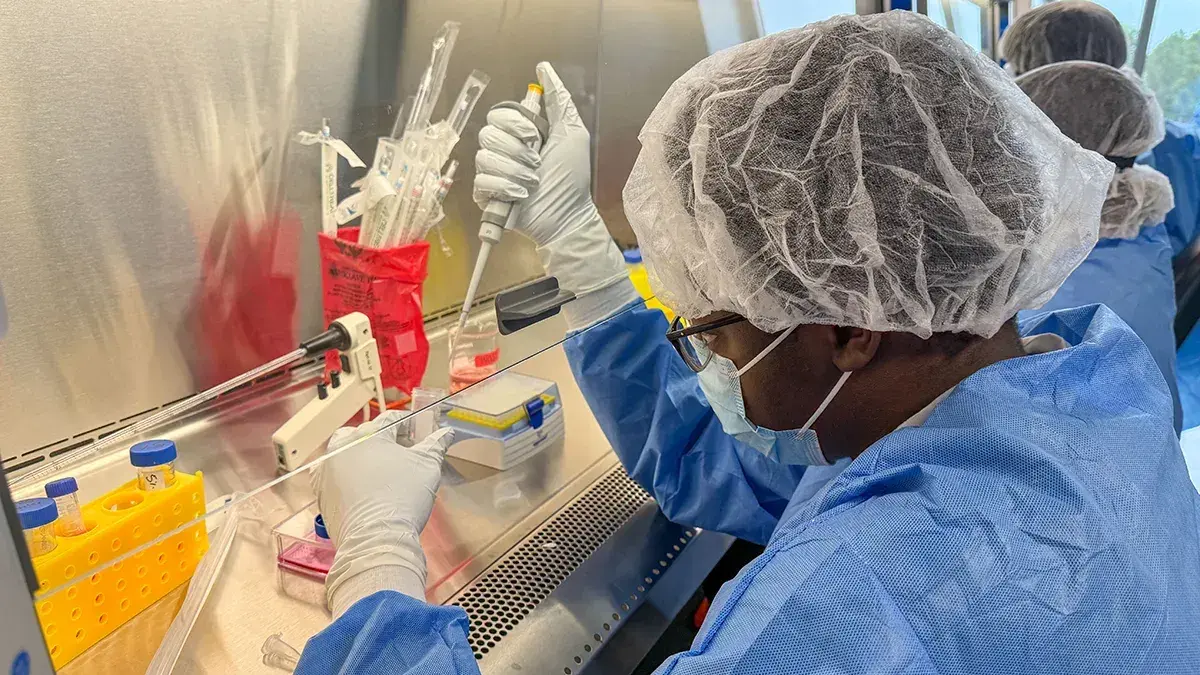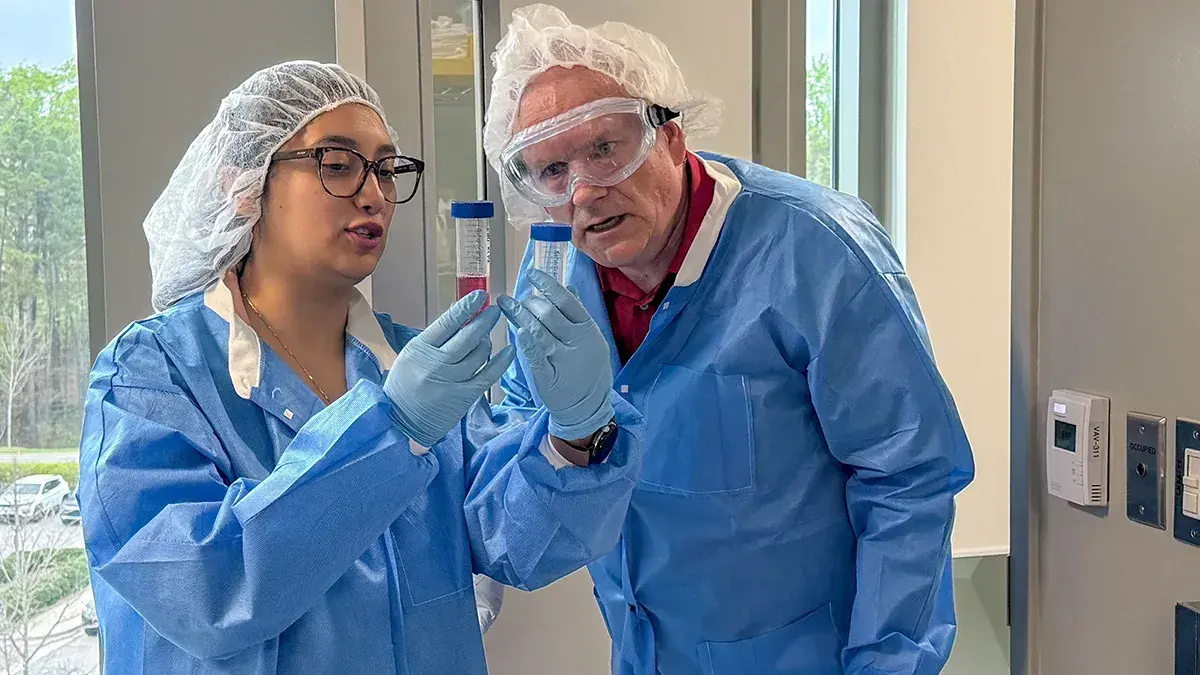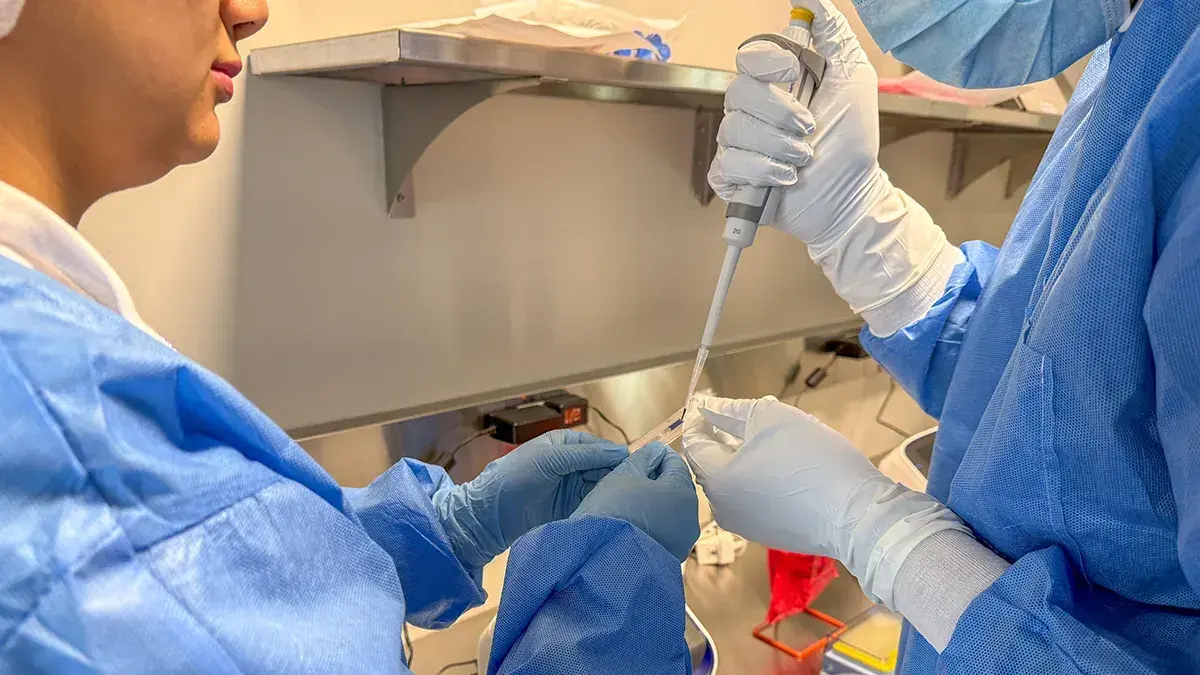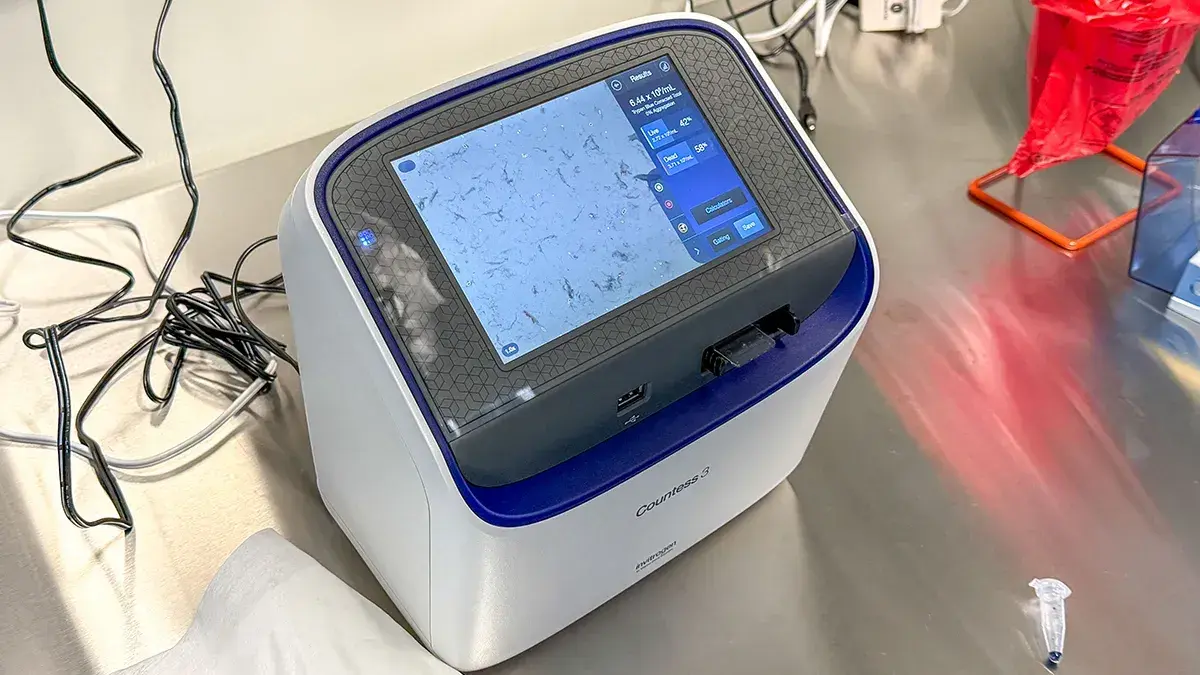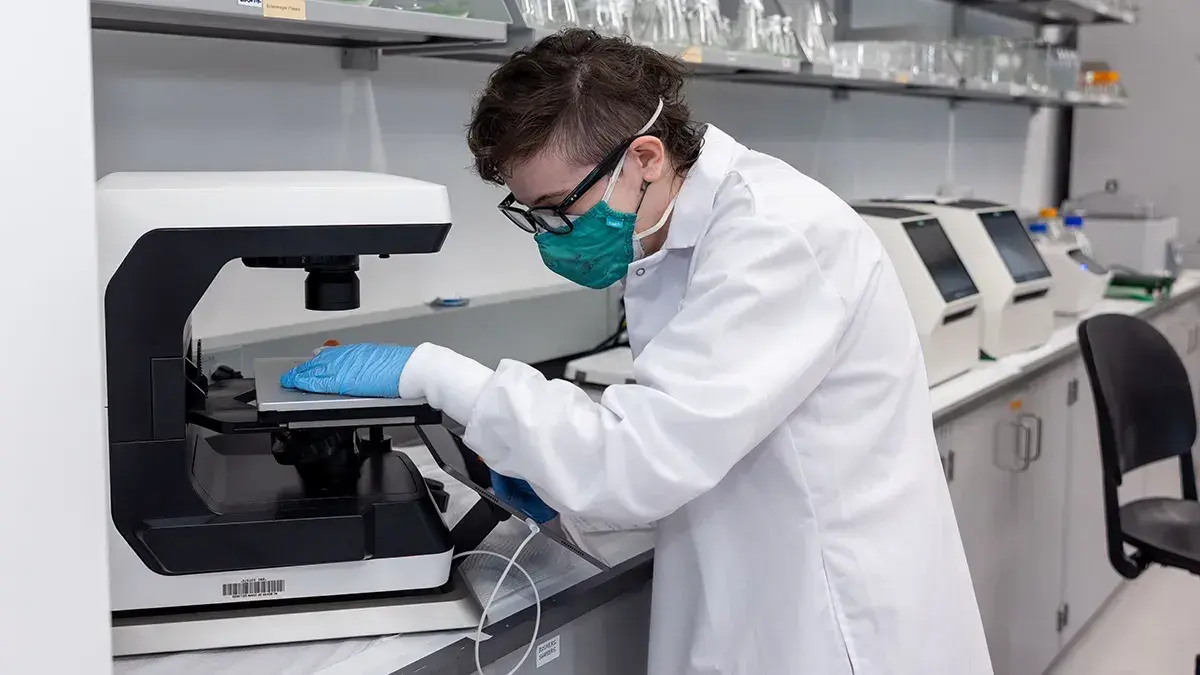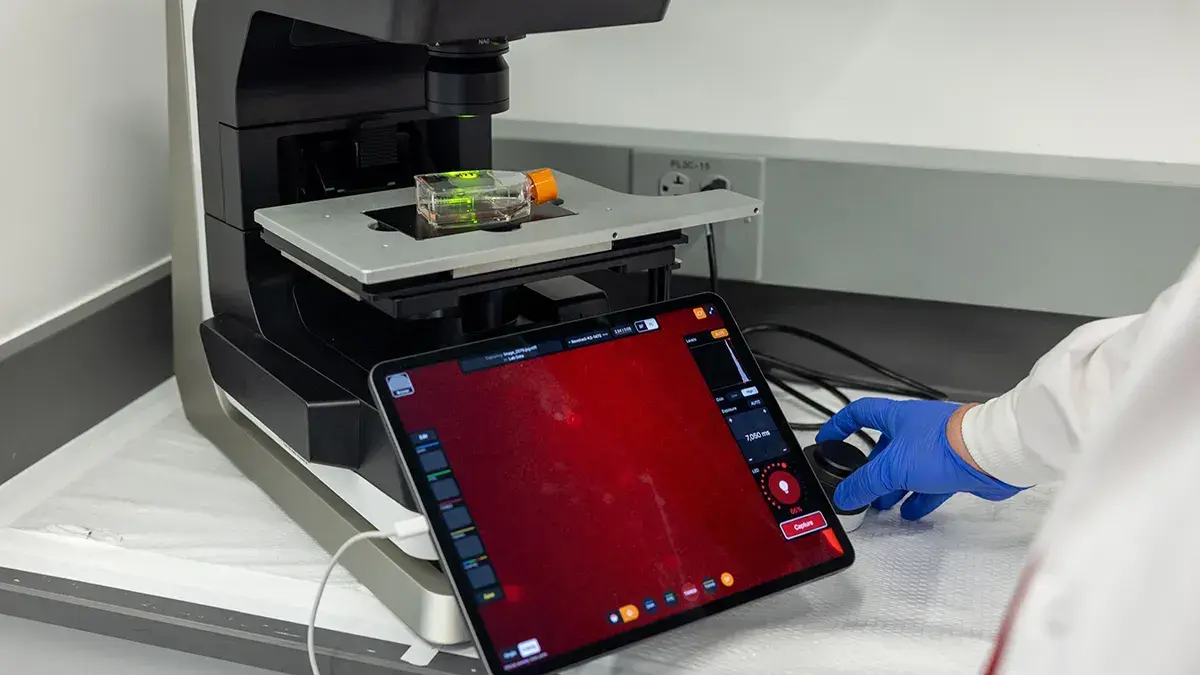Faculty Spotlight
Biotechnology
Researcher Builds Students' Biotech Skills
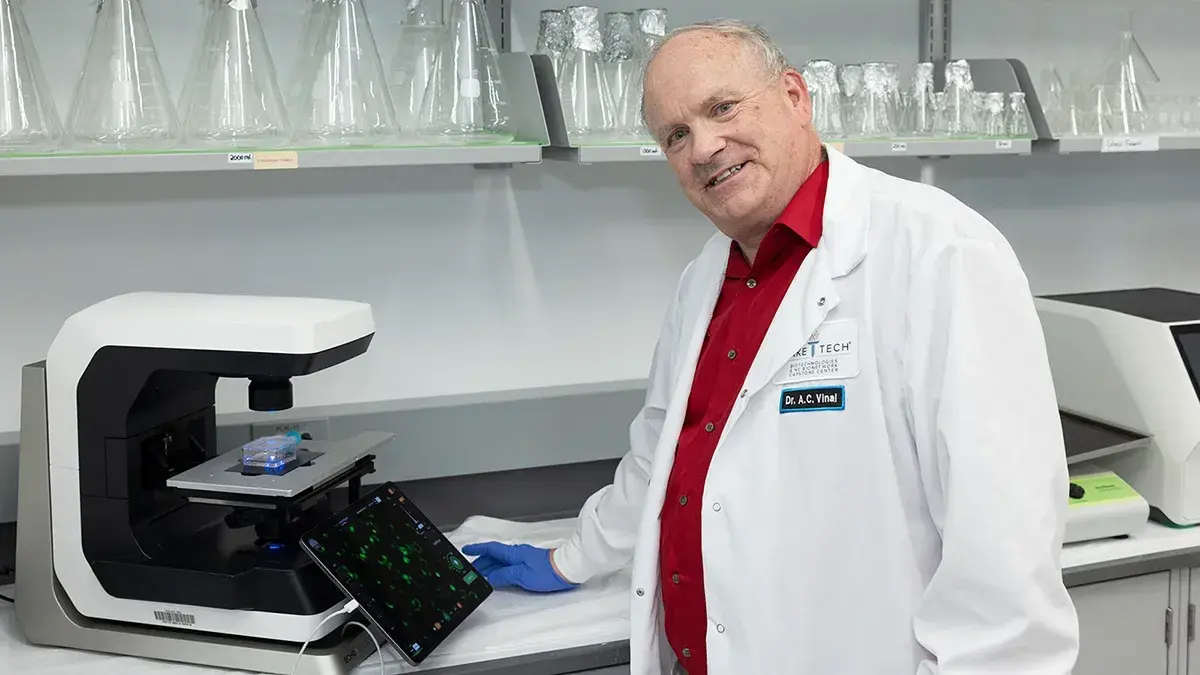
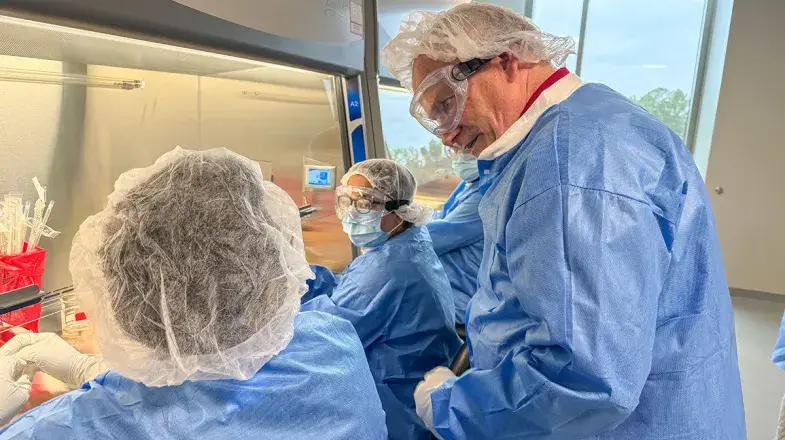
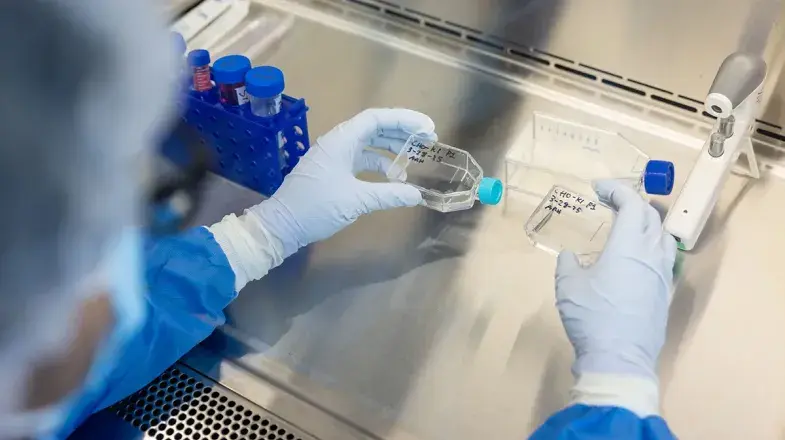
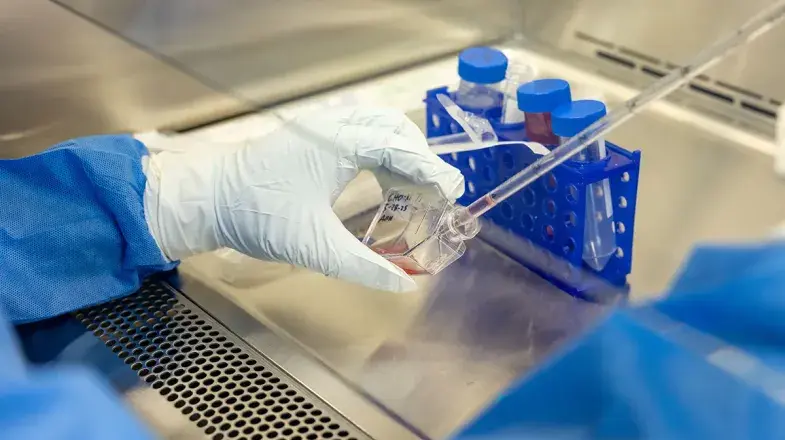
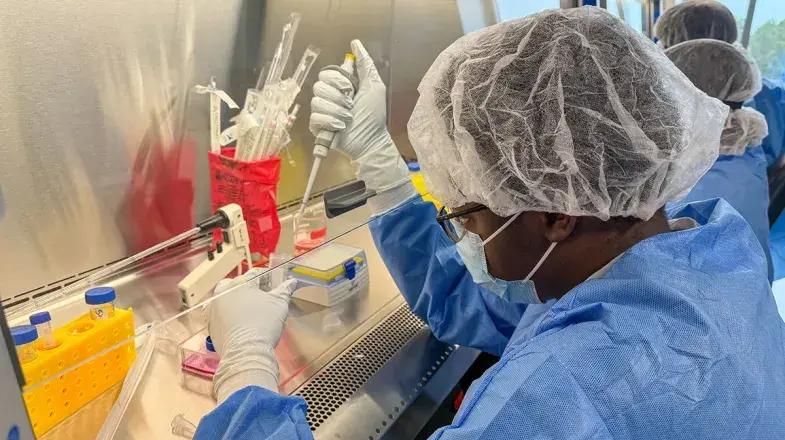
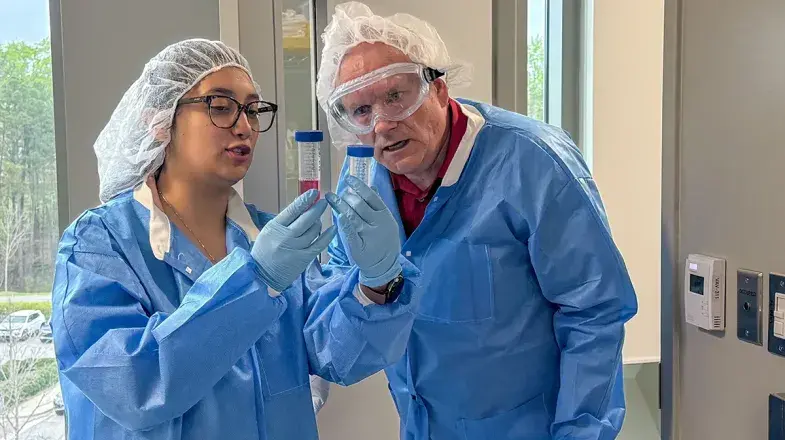
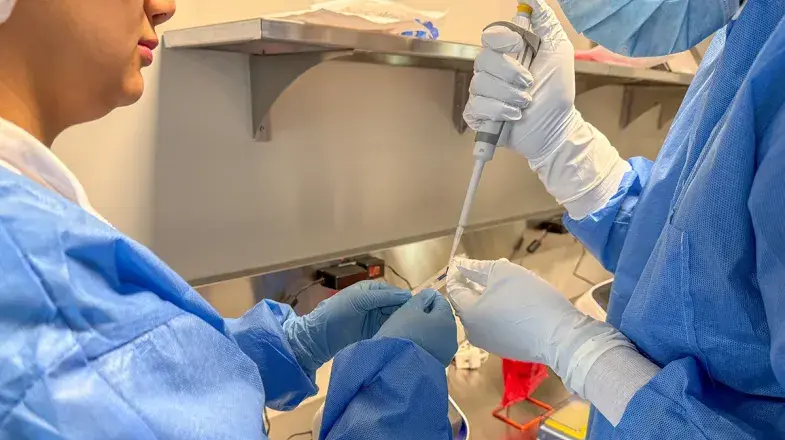
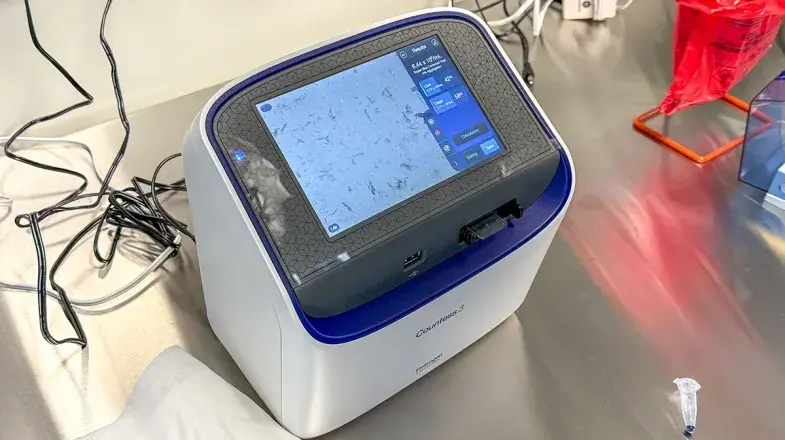
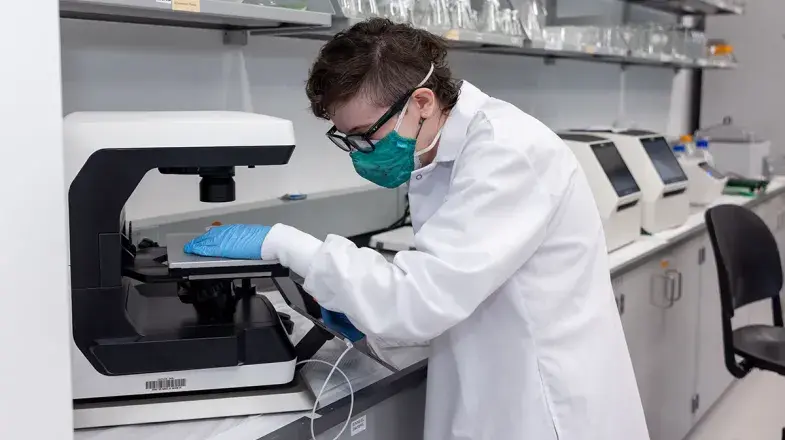
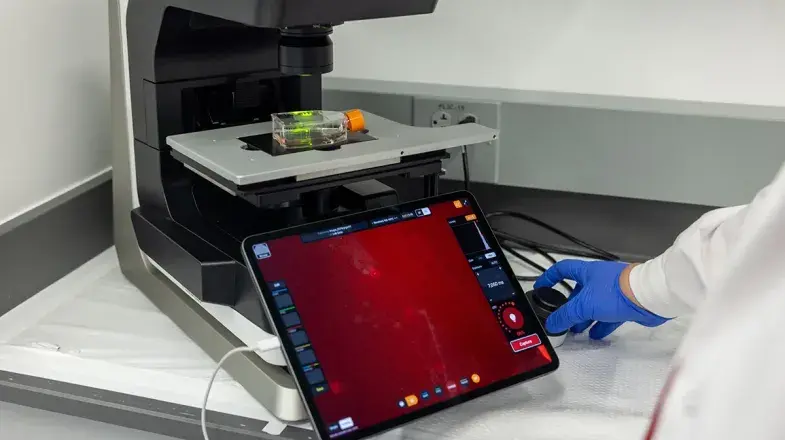
Dressed in blue gowns, hair coverings and other protective garb, Biotechnology students working in a cleanroom on Wake Tech's RTP Campus swap out fluids in vials containing cell cultures to help them grow, a process Associate Professor Dr. Drew Vinal calls "changing the diapers."
Down the hall, other students shoot lasers into containers of cell cultures on a microscope to count the number of cells that have taken up a protein.
Vinal wanders between the two groups to check on progress and answer questions but doesn't insert himself into their work much beyond that.
"I push for them to work independently," he said. "When they get into industry, I won't be there. They have to learn how to fail and grow from it."
Vinal has been building basic skills and confidence in Biotechnology students since Wake Tech began offering an AAS degree program in the field four years ago. Before that, he taught anatomy and physiology, microbiology and genetics courses to Associate in Science and Associate Degree Nursing students for more than a decade.
"I have two years to get students competent with basic lab skills because industry doesn't want to spend time teaching them that," he said. "Time is money for them."
Vinal knows this from experience. He spent years working in industry as a research scientist, an entrepreneur and a tech executive before finding his calling in the classroom.
He grew up wanting to be a veterinarian and earned three degrees from North Carolina State University, including a doctorate from the school's College of Veterinary Medicine. During his master's degree studies, he worked in labs at Burroughs Wellcome, a predecessor to pharmaceutical giant GSK.
"I fell in love with research," he said of his work at the company, where he concentrated on microbiology and genetics studies.
Research remained his focus at the vet school, where he studied poultry diseases. While earning his doctorate, he also patented a poultry vaccine and founded a company, PathoGene Biologics, to market it.
Later, he and his father co-founded Thunderbird Technologies to produce high-speed semiconductors. He acknowledges the shift from biotech to computer tech as a career path was jarring but says it gave him a chance to work with his father, a longtime IBM manager.
After his father died a couple years into the venture, Vinal stayed on to steer Thunderbird until it had grown enough to be sold and recoup money for initial investors.
"It took a lot longer than I expected," he said.
With no clear path ahead, Vinal turned to teaching as a way to get back to his roots studying microbiology and genetics. He had experience in front of a classroom, having served as a teaching assistant while at N.C. State's vet school and teaching courses at Campbell University's pharmacy school after earning his doctorate. So, he took adjunct teaching jobs at Wake Tech and a couple of for-profit institutions before joining Wake Tech full time in 2011.
"I really enjoy the student population here," he said. "I find the students at Wake Tech to be special, motivated and overall extraordinary compared to those at other colleges."
Students likewise admire the man they respectfully refer to as "Dr. V."
"He's very much on the side of doing it is the best way to learn," Macey Lohman said. "I wouldn't have learned half the things I did otherwise."
"He's always encouraging us," Diana Spadea said. "He always wants us to have a side project in addition to classwork."
Vinal does his own side projects as well, taking courses to keep up with the latest trends in the biotech industry and to learn best practices in teaching the relevant skills.
"I really believe in the workforce development mission," he said. "Our gift as a community college is to provide the basic skills students will need to succeed in industry."
The 2025 cadre of trained students will be Vinal's last, however. He was diagnosed with retinal cancer in 2022, which has dimmed his vision, and chemotherapy has sapped him of energy he needs to teach and stay current in the industry.
"As much as I love Wake Tech, I love my life, too," he said. "I just can't keep up with the pace. It's time to pass the baton."
He says he's confident that the Biotechnology program will continue to thrive under instructors like Dr. Mike Nicholson, a veteran of the life sciences industry who joined the college in April.
"The Biotechnology program is laser-focused on the skills required to secure a job and advance in the biotech industry," Vinal said.
